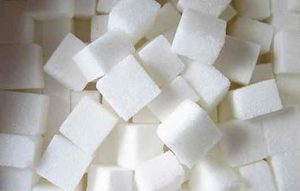 Increased awareness of the health consequences of eating too much sugar has fueled a dramatic uptick in the consumption of zero-calorie artificial sweeteners in recent decades.
Increased awareness of the health consequences of eating too much sugar has fueled a dramatic uptick in the consumption of zero-calorie artificial sweeteners in recent decades.
Artificial sweeteners are one of the most common food additives, frequently consumed in diet sodas and other products.
Despite the addition of these zero-calorie sweeteners to our everyday diets in an effort to avoid the well-known negative health consequences of too much sugar, populations worldwide have still seen a drastic rise in obesity and Type 2 diabetes.
A recent joint study between MCW and Marquette University sheds light on the negative health effects of these artificial additives, showing how they change how the body processes fat and gets its energy.
The team fed different groups of rats diets high in glucose or fructose (kinds of sugar), or aspartame or acesulfame potassium (common zero-calorie artificial sweeteners).
“If you chronically consume these foreign substances – as with sugar – the risk of negative health outcomes increases,” said lead researcher Brian Hoffmann, PhD, assistant professor in the department of biomedical engineering at the Medical College of Wisconsin and Marquette University.
“As with other dietary components, I like to tell people moderation is the key if one finds it hard to completely cut something out of their diet.”

Zucchero-Sugar
The researchers tracked biochemical changes in the body after the consumption of either sugar or sugar substitutes, and they also observed the vascular health impacts of these substances by looking at how these they affected the lining of the blood vessels. The study was conducted in rat and cell cultures.
In addition, one artificial sweetener in particular, acesulfame potassium, accumulated in the blood, therefore harming the cells that line blood vessels.
After three weeks, significant differences emerged in the concentrations of biochemicals, fats and amino acids in the blood samples, suggesting artificial sweeteners change how the body processes fat and gets its energy.
See also:
Artificial sweeteners induce glucose intolerance by altering the gut microbiota (2014-10-22)
Link…
Sugars – carbohydrates – control cholesterol LDL levels in the blood (2019-01-02)
Link…
How fat becomes lethal, even without weight gain (2016-07-01)
Link…
For more information
The Influence of Sugar and Artificial Sweeteners on Vascular Health during the Onset and Progression of Diabetes
Link…
https://plan.core-apps.com/eb2018/abstract/382e0c7eb95d6e76976fbc663612d58a
Applied Physiology, Nutrition, and Metabolism
Aspartame intake is associated with greater glucose intolerance in individuals with obesity
Link…
Medical College of Wisconsin
Link…
Marquette University
Link…
MDN
This post is also available in:
 Italian
Italian


